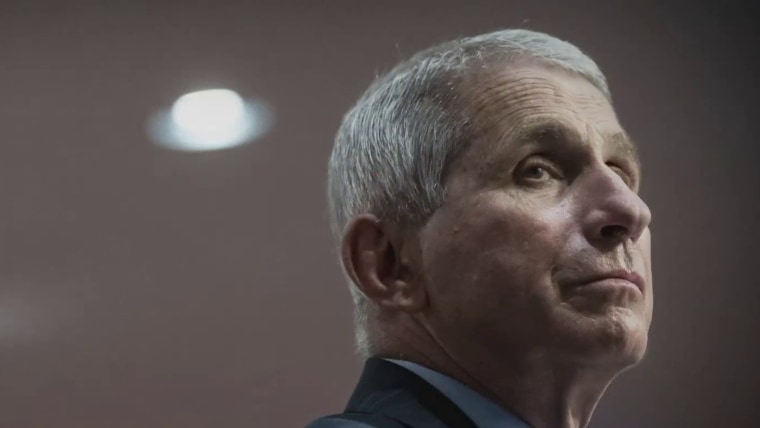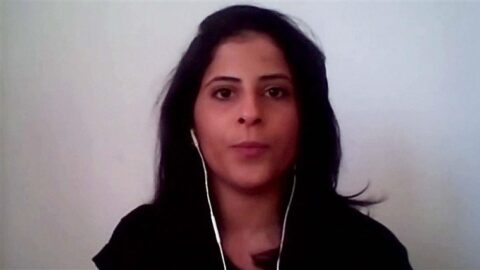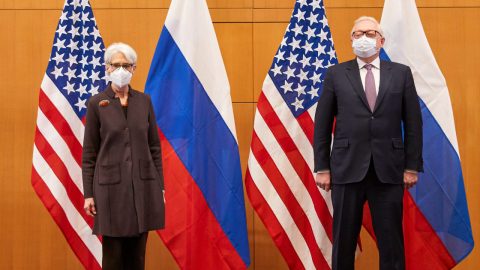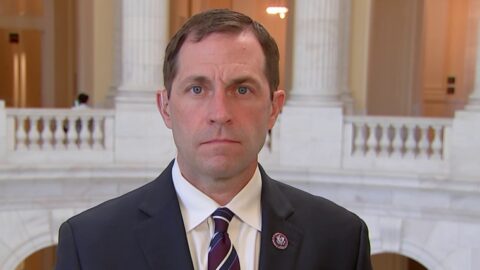China‘s current Covid-19 outbreak would barely register as a blip for most countries, with 125 cases recorded Monday among its 1.4 billion people.
But infections have risen sharply since the middle of July, and some observers question whether Beijing’s drastic zero-tolerance tactics, which crushed previous surges, will be enough to extinguish the highly transmissible delta variant, which is fueling the current wave.
“The jury’s out on whether or not China’s traditional methods will be able to contain it this time,” said Craig Allen, a former U.S. ambassador who is president of the U.S.-China Business Council, a nonprofit organization based in Washington.
“Has the virus outsmarted them? We don’t know the answer to that, but that is the real-life drama being played out,” he said.
While Covid-19 was first identified in China, the country has rarely officially recorded more than two dozen cases a day for over a year. Compare that with the U.S., where daily infection numbers have often been in the tens of thousands.
The U.S. and others have accused China of not being transparent about the early months of the pandemic, including questions about its early reporting of cases and the unproven theory that the coronavirus accidentally escaped from a laboratory in Wuhan, which Beijing rejects out of hand.
But for months, it seemed clear that the contagion had been all but eradicated across much of China, with daily life largely returning to pre-pandemic normality.
Chinese officials have kept a lid on the pandemic by deploying a zero-tolerance playbook that would be considered extreme in the West: sealing off entire cities and enforcing mandatory testing on tens of millions of people.
The current wave started July 10, officials said, when nine airport workers tested positive after having cleaned an Air China flight that arrived in the eastern city of Nanjing from Moscow.
Officials have once again revved up the zero-tolerance machine, banning anyone from leaving the city of Zhangjiajie, canceling flights and trains across the country and shutting tourist sites. Nevertheless, infections have spread to 15 of China’s 31 provinces, state media reported Friday.
He Qinghua, a senior official with China’s National Health Commission, acknowledged Thursday that tackling the delta wave would be more complicated than in the past, particularly because it struck at the peak of summer travel.
“As long as local authorities strictly implement various prevention and control measures, I think the epidemic will be largely under control within two to three incubation periods,” he said at a news conference.
But whether or not China does get a handle on the most recent outbreak, some experts outside the country doubt that imposing lockdowns every time a few dozen cases pop up is the answer.
Download the NBC News app for breaking news and politics
“I don’t think zero tolerance can be sustained,” Xi Chen, a health economist at the Yale School of Public Health, told The Associated Press. “Even if you can lock down all the regions in China, people might still die, and more might die due to hunger or loss of jobs.”
Nomura, a Japanese investment bank, downgraded its growth forecast for the Chinese economy from 8.9 percent to 8.2 percent, citing “draconian measures” by the government.
And Allen, of the U.S.-China Business Council, said “interprovincial transportation of products is becoming a challenge,” as transportation routes between towns and cities are gummed up.
“For factory products that are made in city A but assembled in city B, that supply chain is being disrupted, and workers are not able to get to work,” he said.
A potential problem is that it is unclear how effective China’s vaccines are against the delta variant. China has not released clinical or real-world data, making peer-reviewed analysis difficult.
Dr. Zhang Wenhong, who advises the Chinese government and is sometimes referred to as “China’s Dr. Fauci,” says China’s Sinopharm and Sinovac shots work against the delta variant. But other countries that have used them, including Indonesia and Chile, have reported high numbers of breakthrough infections and deaths.
It is only through widespread vaccination campaigns that some Western countries are trying to live with high levels of infection in the hope that they will not cause mass deaths. In June, Singapore flipped from the “zero-Covid” policy favored by China and Australia to something resembling the Western model, which it called “a new normal.”
“With vaccination, testing, treatment and social responsibility, it may mean that in the near future, when someone gets Covid-19, our response can be very different from now,” Singaporean government ministers said in a statement.
There have been similar murmurings in China, which some international observers have interpreted as a willingness to follow suit.
Shi Zhengli, an influential virologist at the Wuhan Institute of Virology, told the People’s Daily newspaper on Wednesday, “We must let go of our fear and be prepared to coexist with the new coronavirus for a period of time.”
Zhang posted on the social media site Weibo last week, “Most virologists in the world now recognize that this may be a permanent virus, and the world must learn to coexist with this virus.”
And Liu Guoen, an economics professor at Beijing’s Peking University, said Friday at an event hosted by the Chinese tech firm Baidu that China must decide whether to “adjust and optimize the current strategy.”
But the prospects of a U-turn any time soon look slim.
The state-run China Daily newspaper published an editorial Sunday pushing back against those who “argue that China should abandon” its position.
“Some countries have surrendered to the virus, believing that it is impossible for humanity to win the battle against it,” it said. “But they have never tried as hard as China did to tame it in the first instance, and they never won a victory over it as China did.”
The country’s position is extremely unlikely to change, at least until after the Beijing Winter Olympics in February and the National Party Congress of the Chinese Communist Party in October 2022, said Steve Tsang, a professor and the director of the China Institute at SOAS University of London.
“The zero-tolerance policy came directly from Xi Jinping,” Tsang said, referring to the Chinese president. “So until Xi decides to change his mind, it doesn’t matter what any other experts say.”









Recent Comments